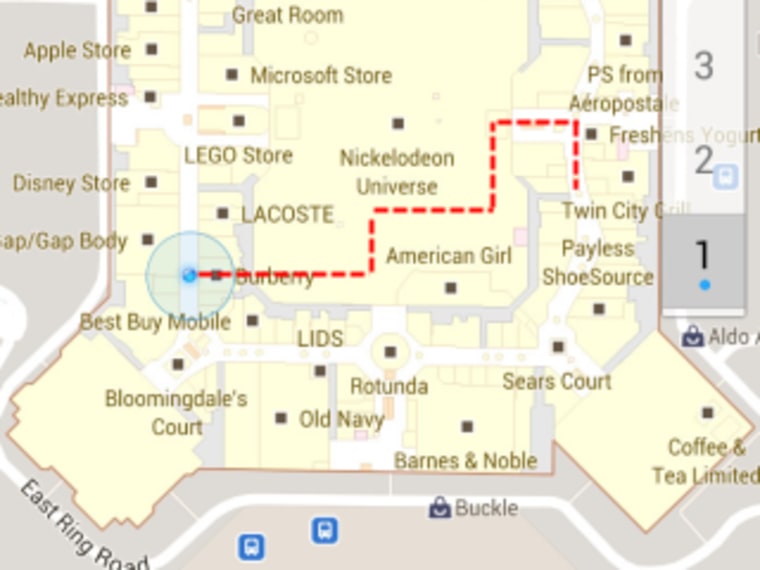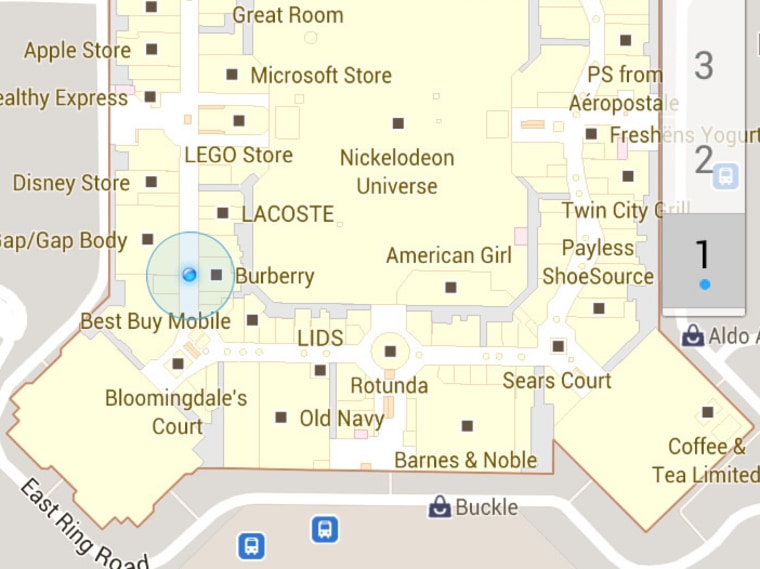Many of us rely on GPS to get around unfamiliar cities and neighborhoods, but a new type of location service could be giving you directions from the dairy section to the frozen foods aisle at the grocery store, and tracking every step you take.

It's called IPS, or indoor positioning service, and it's not quite as far along as the satellite service we use to find the nearest coffee shop. But the idea is the same: your phone, tablet, or maybe even your Google Glasses would be constantly tracking certain signals in your locale, from Bluetooth signals to ultrasonic beacons.
Broadcom, which makes many of the wireless chips that go in handsets and other devices, has created an IPS chip that works on a few different systems, listening for wireless signals but also peeping at your phone's sensors to track movement and orientation.
Of course one of the first things that comes to mind is privacy. Can you really trust that your location won't be broadcast to advertisers, curious strangers or the FBI? It's still in a very early stage, but chances are the service would never be adopted unless there are some serious guarantees that your data will be safe.
It's at least possible that all this information could be kept private, since it wouldn't rely on any outside services to determine your position; it's all done on the device, though the map you'd see would have to be downloaded first. But once the initial data is loaded, the device would be able to tell where it is without communicating with any servers or services at all.
Knowing exactly where you are in a store, mall, airport, or even your home could be very helpful for many, and it brings up many possibilities as well. Depending on how much public information is available, your indoor map could show other people around you with similar interests, or give you a special coupon code for a store you're about to walk by.
It sounds creepy at first, but it wasn't long ago that having a GPS unit in your pocket at all times would be considered overkill, or even dangerous. There's no timeline on IPS devices, but map services have already begun to add indoor locations and there are pilot studies underway. It's probably safe to say that in a year or two this technology will be making the change from fantasy to coveted feature.
Devin Coldewey is a contributing writer for msnbc.com. His personal website is coldewey.cc .
